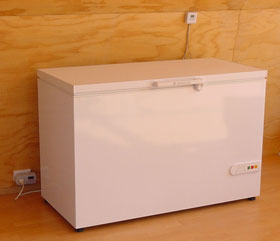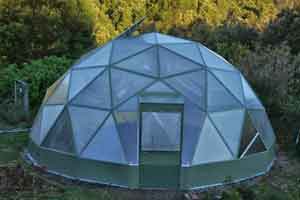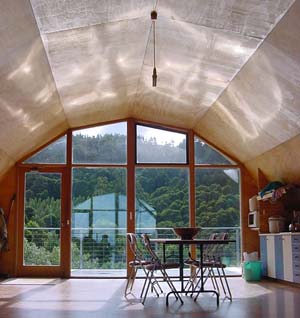Energy Efficiency
How do we measure energy efficiency?
Some people promote and use so-called "star" energy rating. Unfortunately the "star" energy rating is deeply misleading, because it prevents people from understanding the Nature of the energy they use, not to mention reasons and consequences for their energy waste. "Star" system prevents people from seeking devices and lifestyle that are truly energy efficient. Finding out what a "star rating" really means in terms of energy efficiency (and waste) is actually impossible.
Those who are impressed by a "6 star" fridge that consumes 210kWh a year won't even begin to imagine a fridge that consumes 40 kWh a year. Have you seen it here ?
Another way some people measure "efficiency" is by the amount of money any given gadget costs them to run. While more efficient gadget will consume less energy and will cost less to operate, thinking in terms of money is a real barrier for improving energy efficiency.
People settle for what they can afford, and if they can afford it - they don't care about improving anything. They assume that energy supply is unlimited and the only limit is what they can afford.
Aiming for monetary efficiency (profit) and energy efficiency are totally different directions leading to totally different outcomes. Do you realize that money oriented decisions have led us to the situation we are today, where the environment is destroyed faster than it can recover?
I consider energy efficiency in a wider context - sustaining The Planet and the Environment. From this point of view it actually does matter where the energy we are using comes FROM and how much pollution is generated as a result of its generation and waste.
Have you explored your electricity bill? Have you noticed how many TONNES of pollution your household generates each month?
The main reason for such a horrific pollution figure is a very low efficiency of electricity generation from fossil fuels, typically around 20%. It means that electricity made from fossil fuels is a very "dirty" kind of energy. For every kWh of such energy that you use, FOUR escapes via various chimneys to the atmosphere. Not only that.
Exhaust gasses (CO2) from those chimneys form a trap for Solar heat, contributing to global climate change and planetary interior overheating that sooner or later WILL affect us all more than we think.
From the above it is important that energy that we use comes from sustainable and non-polluting sources. Even if we waste some of such energy - we create zero footprint on the environment.
Another side to energy efficiency is a necessity of reducing our demand for energy, especially from non-sustainable (dirty and polluting) sources. It is very important to be able to understand and quantify our energy needs. Only then we can see where we really need energy, where we waste it and how we can reduce our energy needs in the most effective way.
Having energy efficient lights and gadgets is a step in a good direction, but a better way is to design a house and/or modify the lifestyle to avoid some of them altogether. Take for example a vacuum cleaner. I have no need for it, because I installed floor coverings that are much easier, quicker and quieter to sweep than to vacuum clean.
In a similar way, the best way to reduce the need for heating energy in winter is to consciously design a well-insulated house with double glazed windows. Then, solar heating or a small heat pump system can do wonders.
Implementing some simple ideas can reduce the household energy consumption to only 0.8 kWh per day...








